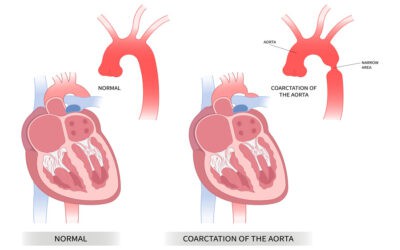Atrial fibrillation (also called AFib or AF) is a common heart rhythm disorder that affects the upper chambers of the heart, known as the atria. In a healthy heart, electric signals help maintain a normal heartbeat and those originate in the sinoatrial (SA) node, which acts as the natural pacemaker of the heart. These signals travel through the heart’s electrical system, causing the atria to contract and pump blood into the lower chambers, called the ventricles.
In atrial fibrillation, the normal electrical impulses in the atria become chaotic and disorganized. Instead of contracting in a coordinated manner, the atria fibrillate, which means they quiver or flutter rapidly. This irregular and rapid electrical activity causes the atria to pump blood ineffectively and can lead to a rapid and irregular heartbeat.
Experiencing atrial fibrillation can be a little unsettling and frightening, but understanding the condition better can take some of that fear away and prepare you to deal with it effectively.
What are the symptoms of atrial fibrillation?
The symptoms of atrial fibrillation can vary from person to person. Some individuals may experience noticeable symptoms, while others may have no obvious symptoms at all. According to the National Heart, Blood, and Lung Institute, some common symptoms of atrial fibrillation include…
-
- Palpitations: A sensation of a rapid, fluttering, or pounding heartbeat.
- Fatigue: Feeling tired, weak, or exhausted, even after performing minimal activity.
- Shortness of breath: Difficulty breathing or catching your breath, especially during physical exertion or while lying flat.
- Dizziness or lightheadedness: Feeling faint, dizzy, or lightheaded.
- Chest discomfort: Some people may experience chest pain or pressure, which can be anywhere from mild to severe.
It’s important to note that these symptoms can also be associated with other medical conditions, so proper medical evaluation is necessary for an accurate diagnosis. If you notice any of these symptoms, it is crucial to see a medical professional for proper guidance as soon as possible.
What can cause atrial fibrillation to develop?
The causes of atrial fibrillation (AF) can be multifactorial and vary from person to person. According to the American Heart Association, there are several known factors that can contribute to the development of atrial fibrillation. Some of the common causes and risk factors for developing atrial fibrillation include…
-
-
-
- Age: The risk of atrial fibrillation increases with age, especially in individuals over 60 years old.
- High blood pressure (also called hypertension): Elevated blood pressure, especially when it is elevated over long periods of time, can put strain on the heart and increase the risk of developing atrial fibrillation.
- Heart disease: Various heart conditions, such as coronary artery disease, heart valve problems, congenital heart defects, and prior heart surgeries can all contribute to the development of atrial fibrillation.
- Thyroid problems: An overactive thyroid gland (hyperthyroidism) can increase the risk of atrial fibrillation.
- Obesity: Excess body weight and obesity can contribute to the development of atrial fibrillation.
- Sleep apnea: Obstructive sleep apnea, a condition characterized by interrupted breathing during sleep, has been associated with an increased risk of atrial fibrillation.
- Chronic conditions: Chronic lung disease, diabetes, and kidney disease have been linked to a higher risk of atrial fibrillation.
- Excessive alcohol or stimulant use: Heavy alcohol consumption and certain stimulant drugs can trigger atrial fibrillation episodes.
- Family history: There may be a genetic component to atrial fibrillation, and having a family history of the condition can increase the risk.
- Other lifestyle factors: Factors such as smoking, excessive caffeine intake, and certain medications or substances can also contribute to atrial fibrillation.
-
-
It’s important to note that in some cases, the cause of atrial fibrillation may be unknown – sometimes, people develop the condition without any clear-cut or obvious cause.
What can happen if atrial fibrillation is left untreated?
The Mayo Clinic reports that poorly managed atrial fibrillation can lead to various complications and potentially have serious consequences to a person’s health. Some of the potential risks and complications associated with untreated atrial fibrillation include…
- Strokes: One of the most significant risks of atrial fibrillation is the formation of blood clots in the heart. When the atria do not contract effectively, blood may pool and form clots. These clots can travel to the brain, causing a stroke if they block blood flow to a part of the brain. Strokes related to atrial fibrillation tend to be more severe than other types of strokes.
- Heart failure: Atrial fibrillation can lead to a rapid and irregular heartbeat, which affects the heart’s ability to pump blood efficiently. Over time, the irregular rhythm and increased workload on the heart can weaken the heart muscle and lead to heart failure, a condition where the heart cannot pump enough blood to meet the body’s needs.
- Persistent symptoms: Atrial fibrillation can cause bothersome symptoms such as palpitations, fatigue, shortness of breath, and reduced exercise tolerance. If left untreated, these symptoms can significantly affect a person’s quality of life and overall sense of well-being.
- Other heart-related complications: Atrial fibrillation can increase the risk of other heart rhythm disorders, such as atrial flutter or ventricular tachycardia. It may also exacerbate underlying heart conditions and increase the likelihood of complications such as blood clots in the legs (deep vein thrombosis) or lungs (pulmonary embolism).
- Reduced life expectancy: Studies have shown that untreated atrial fibrillation can shorten life expectancy. This is primarily due to the increased risk of stroke, heart failure, and other cardiovascular complications associated with the condition, as mentioned above.
It’s important to note that the risks and complications of atrial fibrillation can be significantly reduced with proper management and treatment. If you suspect you have atrial fibrillation or have been diagnosed with the condition, it’s crucial to seek medical attention and work with a healthcare professional to develop an appropriate treatment plan to reduce the risks and manage the condition effectively.
Atrial fibrillation (AF) is considered a chronic condition, and in most cases, it cannot be completely cured. However, with appropriate management and treatment, the symptoms of atrial fibrillation can often be controlled, and the risk of complications can be significantly reduced. Primary treatment goals for atrial fibrillation are to restore heart rhythm to a normal state and prevent further complications.









